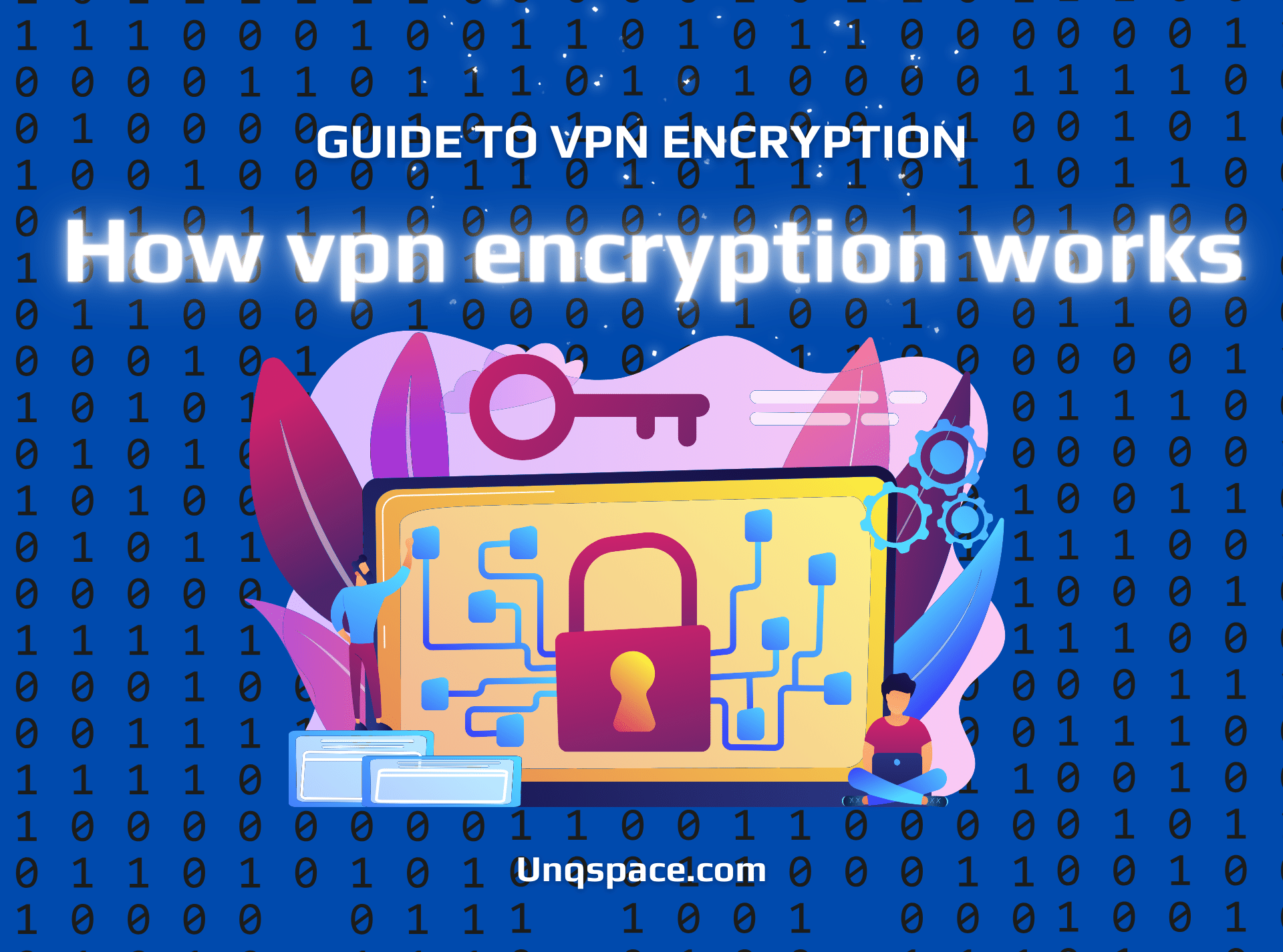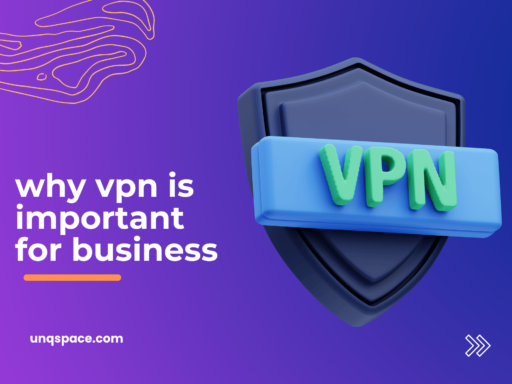Understanding How VPN Encryption Works
Welcome to a comprehensive exploration of VPN encryption, delving into how this security protocol safeguards your online privacy. Through this article, we will dissect terms like ‘vpn encryption,’ ‘symmetric encryption,’ ‘vpn service’, and ‘aes-256 encryption’ to explain the intricacies of what goes on behind the scenes in a VPN server when you hit that connect button.
What is VPN Encryption and why is it important?
At its core, VPN encryption involves transforming the data you send over the internet into indecipherable text, camouflaging your online activities from prying eyes. This safeguard is paramount due to the high prevalence of data breaches and the increasing sophistication of hackers in the modern digital landscape.
Defining VPN Encryption
VPN encryption is the mechanism used by a VPN service to encrypt your data before it’s sent over the internet. Once the vpn encrypted data reaches its destination, it is decrypted, making it readable. The decryption key is only available to your device and the VPN server, ensuring end-to-end encryption for maximum security.
The Importance of VPN Encryption for security
VPN encryption serves as a robust security fortress against unauthorized access to your data. Whether you are conducting financial transactions online or just browsing, encryption ensures that even if a hacker intercepts your data, they won’t be able to use it. VPNs use different encryption methods, and the type of encryption employed largely affects the security levels provided by the VPN service.
How Different VPNs use Encryption
Different VPNs use different encryption algorithms and security protocols, providing varying levels of security. The decision on which VPN to use is often a balance between the level of security provided (dictated by the type of VPN encryption used) and the speed at which the VPN server can encrypt and decrypt data.
How does VPN Encryption Work?
Imagine your data as a locked house that only you and your VPN server have the keys to. In VPN encryption, your device (the VPN client) and the VPN server both use an agreed-upon encryption key to encrypt and decrypt the data. This key is used in a process known as tunnelling to create a ‘VPN tunnel’, that securely transports your data from your device to the internet.
Explaining The Encryption Process
The process of VPN encryption involves converting your data into an unreadable format before it’s sent over the internet, rendering it useless to any unauthorized viewers. This is possible through using VPN encryption that employs complex mathematical algorithms to encrypt your data and a unique encryption key to decrypt it.
Understanding Symmetric and Asymmetric Encryption
Symmetric encryption uses the same key to both encrypt and decrypt data, while asymmetric encryption uses a public key to encrypt the message and a private key to decrypt it. Both encryption mechanisms are commonly used by VPN services, with the choice often depending on the specific requirements of the user and the security levels provided by the VPN service.
The Role of Encryption Keys
Encryption keys play a crucial role in VPN encryption. They are the unique pieces of information used to encrypt and decrypt data, working much like a lock and key mechanism. The encryption key is generated when you connect to a VPN server and is kept private between your device and the server.
Exploring the Different Types of VPN Encryption Protocols
There’s a buffet of VPN encryption protocols, each coming with its bouquet of features and security measures. Let’s delve into some commonly used ones and how they work.
The Advanced Encryption Standard (AES)
The Advanced Encryption Standard (AES) is a symmetric encryption cipher widely regarded as the most secure. It’s available in different strength levels, with AES-256 encryption providing the best security and being the most commonly used encryption standard by VPN providers.
Understanding the concept of VPN Protocol
A VPN protocol determines how your data is routed between your device and the VPN server. Different protocols offer different encryption standards and levels of security. The choice of protocol can affect the speed, security, and reliability of your VPN connection.
Common Encryption Protocols used by VPNs
Among the common encryption protocols used by reputable VPNs include OpenVPN, IKEv2/IPSec, and L2TP/IPSec. OpenVPN is widely recommended due to its balance between speed and security, while the others are also popular options due to their strong security features and heavy encryption use.
How to Check if Your VPN is Effectively Using Encryption
Trust, but verify! How can you ensure that your VPN is protecting you as promised? Let’s explore tools that can check if your VPN is effectively employing encryption to secure your cyber-world.
Tools to Test the efficiency of your VPN’s Encryption
Tools like Wireshark can help you analyze your network traffic and ascertain whether your VPN is encrypting your data effectively. Additionally, online tools like ipleak.net can test your VPN’s encryption strength by checking for IP or DNS leaks.
Recognizing a Secure VPN Service
A secure VPN service typically uses robust encryption algorithms (like AES), employs stringent no-logs policies, operates an extensive network of servers to prevent overcrowding, and has a good reputation. Choosing such a service ensures your data remains encrypted and secure throughout your VPN connection.
How to check your VPN Connection
You can check your VPN connection effectiveness by running a few simple tests. Checking your IP address before and after connecting to the VPN server can confirm if the VPN connection is working, as your IP address should change. Additionally, running a DNS Leak test can help you ensure that your VPN is effectively routing your data through its servers.
Do you always need a VPN and its encryption for all internet services?
While using a VPN for all internet services adds an extra layer of privacy and security, it may not always be necessary. It’s important to weigh the need for a VPN service against the type of internet service you’re using and the personal data involved.
When to Use a VPN
You should use a VPN when accessing sensitive information, especially on public networks. Whenever doing online banking, sending confidential emails, or engaging in any activity that involves personal information, a secure VPN connection is essential.
Understanding the limits of VPN Encryption
While VPN encryption is a significant step towards internet security, it’s not a magic bullet for all cybersecurity issues. For example, it won’t protect you from phishing scams and can’t shield you from tracking by websites that use cookies. However, it’s important for preventing data interception and maintaining anonymity online.
Weighing the need for a VPN service against the type of internet service you are using
The need for a VPN service largely depends on the nature of your internet activities. If you frequently send sensitive information over the web, you’re a prime target for hackers, and a secure VPN is necessary. However, for nominally sensitive activities like watching YouTube videos, a VPN might be considered an optional measure.
FAQs
Q: How does vpn encryption work?
A: A VPN (Virtual Private Network) routes your data through a VPN tunnel, encrypting it at the beginning of the transit and decrypting it at the destination. This prevents your Internet Service Provider and prying eyes from reading your internet traffic.
Q: What does it mean to encrypt data using a vpn?
A: When you use a VPN, it encrypts your data by converting it into indecipherable code in transit from your device to the VPN server using either public-key encryption or symmetric encryption key. This ensures that no one can read your data if it’s intercepted.
Q: What is the best encryption method used by most reputable vpn services?
A: The best VPN encryption is usually AES 256-bit encryption, which is considered to be virtually unbreakable. It’s the same type of encryption used by governments and financial institutions all around the world. Some VPN services use different types of encryption, but always make sure there’s a secure encryption option.
Q: How does a VPN encrypt my data when I’m using public Wi-Fi?
A: When you use a VPN on a public Wi-Fi network, the VPN creates a secure, encrypted connection between your device and the VPN’s server. It then routes all your internet traffic through this secure tunnel, making sure your data stays protected from anyone else on the network.
Q: What type of encryption is typically used for a virtual private network?
A: Most VPN services use AES-256 encryption protocol, which is a powerful symmetric encryption key. Other types of encryption can also include Blowfish and RSA.
Q: Can anyone decrypt my data if I’m using a vpn?
A: With the high levels of encryption that most VPNs use, it’s exceedingly difficult for anyone to decrypt your data. Unless they have the encryption key used to encrypt the data on your connection, it’s virtually impossible.
Q: What are the different types of vpn encryption methods?
A: There are several types- symmetric cryptography like AES where the same key is used for encryption and decryption, asymmetric cryptography like RSA that uses two keys for encryption and decryption, and hashed-based like SHA, which isn’t used for data encryption, but verifying the integrity of data.
Q: Why should we encrypt our data using a VPN?
A: Using a VPN and encryption will make your online activities more secure. It will protect you from potential snooping from hackers and even your internet service provider, especially when using public Wi-Fi. On top of that, it also offers the advantage of obfuscating your geographic location.
Q: Are there different vpns with different encryption methods?
A: Yes, there are indeed. Although many VPNs prefer using AES 256-bit encryption for its reputation of being virtually uncrackable, there are different VPNs with different encryption methods such as RSA, Camellia, and more.
Q: What should I be looking for in a vpn in terms of encryption?
A: When choosing a VPN, opt for one which uses secure VPN protocols and strong encryption (preferably AES-256). Look for a VPN with a no-logs policy to make sure your data isn’t stored. Also, take into account the reputation of the VPN provider and read reviews to make an informed choice.






